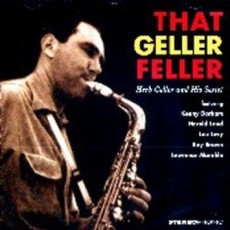
Daily Dose Of Jazz…
Herb Geller was born Herbert Arnold Geller on November 2, 1928 in Los Angeles, California. His initial exposure to was from his mother who played piano accompanying silent films at a Hollywood theater. At the age of 8, he was presented with an alto saxophone and two years later started clarinet. He went to Dorsey High School, joined the school band with Eric Dolphy and Vi Redd. At the age of 14, after hearing Benny Carter live in performance, he decided to pursue a career a music career playing his original instrument of study.
By age sixteen Geller had his first professional engagement in the band of jazz violinist Joe Venuti. A short time later he discovered Charlie Parker and Johnny Hodges and along with Carter became important idols for him. A move to New York City in 1949 saw him performing in the bands of Jack Fina with Paul Desmond, Claude Thornhill, Jerry Wald and Lucky Millinder. It was during this time he met hi future wife and musical partner Lorraine Walsh.
After three years in New York, Herb joined the Billy May orchestra in 1952 and, following an engagement in Los Angeles, returned there to live. He worked and recorded with Shorty Rogers, Maynard Ferguson, Bill Holman, Shelly Manne, Marty Paich, Barney Kessell, Andre Previn, Quincy Jones, Wardell Gray, Jack Sheldon, and Chet Baker. He recorded three album as a leader for Emarcy plus some with Dinah Washington, Max Roach, Clifford Brown, Clark Terry, and Kenny Drew.
In 1955 he won the “New Star Award” from Down Beat Magazine, worked in the bands of Louis Bellson and Benny Goodman, played bossa nova in Beazil and sailed to Europe and played in Paris with Kenny Clarke, Kenny Drew, Martial Solal, Rene Thomas and toured with a French radio show, Musique Aux Champs-Elysées. He would go on to work with the RIAS Big Band in Berlin, play lead alto and arrange for the NDR Big Band in Hamburg and for twenty0eight years made the city his home. During this period her performed with Don Byas, Joe Pass, Sloide Hampton, Bill Evans, Red Mitchell, Art Farmer, Georgie Fame, Ray Charles, Ella Fitzgerald, Baden Powell, Peter Herbolzheimer and George Gruntz.
He composed for two musicals Playing Jazz, a musical autobiography and Josie B, based upon the life of Josephine Baker, taught at the Hochschule fur Muzik, and wrote a method of improvisation called crossover, was knighted, and awarded the Louis Armstrong Gedachtnispreis. Alto saxophonist Herb Geller who also played clarinet, flute, oboe, English horn and passed away of pneumonia in a hospital in Hamburg, Germany, aged 85, on December 19, 2013.
More Posts: english horn,flute,saxophone
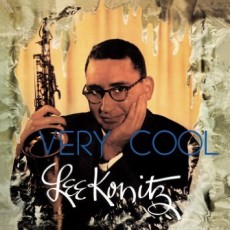
Daily Dose Of Jazz…
Lee Konitz was born October 13, 1927 in Chicago, Illinois. At age 11, he received his first instrument, a clarinet, but later dropped the instrument in favor of the tenor saxophone. He eventually moved from tenor to alto. His greatest influences at the time were the swing big bands, in particular Benny Goodman, who prompted him to take up clarinet. However, on the saxophone he was improvising before ever learning to play any standards.[1]
Konitz began his professional career in 1945 with the Teddy Powell band replacing Charlie Ventura. A month later the band parted ways and between 1945 and 1947 he performed off and on with Jerry Wald. In 1946 he first met pianist Lennie Tristano, working in a small cocktail bar with him. He went on to work through the Forties with Claude Thornhill, Gil Evans and Gerry Mulligan.
He played with Miles Davis on a couple of gigs in 1949 and recorded with him on the album The Birth of the Cool. Though his presence in the group angered some unemployed black musicians Davis rebuffed their criticisms. The same year his debut as leader also came in a session that would be titled Subconscious-Lee, release some six years later.
By the early 1950s, Lee recorded and toured with Stan Kenton, but through the decade he recorded as a leader. In 1961, he teamed up with Elvin Jones and Sonny Dallas to record a series of standards on Motion, followed by duets project utilizing sax and trombone, two saxophones, saxophone and violinist Ray Nance or guitarist Jim Hall..
In 1971 Konitz contributed to the film score for Desperate Characters, performed at the Woodstock Jazz Festival, has performed or recorded with Dave Brubeck, Ornette Coleman, Charles Mingus, Gerry Mulligan, Elvin Jones, Brad Mehldau, Charlie Haden, Grace Kelly, Gary Peacock, Bill Frisell, Joey Baron and Paul Motian, among numerous others.
In addition to his bebop and cool jazz releases alto saxophonist Lee Konitz has become more experimental as he has grown older, has released a number of free and avant-garde jazz albums , all of which have amassed over some one hundred and twenty to date as a leader. He has recorded some fifty albums as a sideman and continues to perform and tour, often playing alongside many far younger musicians.
Alto saxophonist Lee Konitz died during the COVID-19 pandemic from complications brought on by the disease on April 15, 2020.
More Posts: saxophone
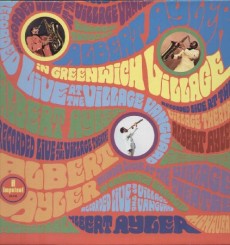
Daily Dose Of Jazz…
Donald Ayler was born in Cleveland Heights, Ohio on October 5, 1942, the younger brother of saxophonist Albert Ayler. He took up the trumpet as a child and went on to work with his brother in the mid-1960s but in 1967 had a nervous breakdown, which affected his brother’s life as well.
In 1970 his brother’s death affected him deeply. After that he worked with a septet in Florence but never led a recording session of his own. To this day, Donald remains best known for his jazz performance and recordings with his brother Albert.
Trumpeter Donald Ayler, who played in the free, avant-garde and mainstream genres of jazz, suffered a sudden heart attack on Sunday October 21, 2007, and passed away at home in Northfield, Ohio.
More Posts: trumpet
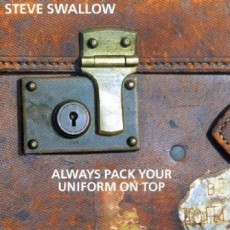
Daily Dose Of Jazz…
Steve Swallow was born October 4, 1940 in Fair Lawn, New York. As a child, he studied piano and trumpet before turning to the double bass at age 14. While attending a prep school, he began trying his hand in jazz improvisation. While attending Yale and studying composition he left oin 1960, settled in New York and began playing in Jimmy Guiffre’s trio with Paul Bley. By 1964 he was with Art Farmer’s quartet where he began to write and during this period his long association with Gary Burton’s various bands commenced.
The early 1970s saw Swallow switching exclusively to the five-string electric bass guitar, encouraged by his favorite drummer Roy Haynes. Along with Monk Montgomery and Bob Cranshaw was one of the firsts to do so. He was an early adopter of the high C string and use of the upper register.
In 1974-76 Steve taught at the Berklee College of Music, contributed several of his compositions to the Berklee students who assembled the first edition of The Real Book. He later recorded an album of the same name, with the picture of a well-worn, coffee-stained Real Book on the cover. By 1978 he became an essential and constant member of Carla Bley’s band and her romantic partner since the 1980s. He toured extensively with John Scofield in the early Eighties, returning to this collaboration several times over the years.
Swallow has consistently won the electric bass category in Down Beat yearly polls, both Critics’ and Readers’, since the mid-80s. His compositions have been covered by, among others, Bill Evans, Chcick Corea, Stan Getz, Gary Burton and Jim Hall, who recorded his very first tune, Eiderdown. He has performed or recorded with Don Ellis, Dave Douglas, Steve Kuhn, Pete La Roca, Joe Lovano, Michael Mantler, Gary McFarland, Pat Metheny, Paul Motian, Jimmy Raney, Zoot Sims, Tore Johansen and George Russell.
Bassist Steve Swallow, who performs in the genres of cool, fusion, avant-garde, free, post-bop and hard bop jazz, has fourteen albums to his credit as a leader an co-leader and continues to perform, compose, record and tour.
More Posts: bass
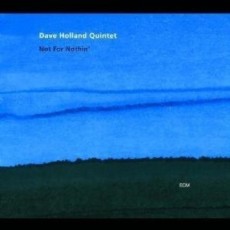
Daily Dose Of Jazz…
Dave Holland was born on October 1, 1946 in Wolverhampton, England and taught himself to play stringed instruments, beginning at four on the ukelele, then graduating to guitar and later bass guitar. He quit school at the age of 15 to pursue his profession in a top 40 band, but soon gravitated to jazz. After seeing an issue of Down Beat magazine where Ray Brow had won the critics’ poll for best bass player, he went to a record store, and bought a couple of LPs featuring Brown backing pianist Oscar Peterson and also two Leroy Vinnegar albums. He was also drawn to Charles Mingus and Jimmy Garrison.
A move to London in 1964 saw Dave played acoustic bass in small venues and studying with James Edward Merrett, principal bassist of the Philharmonia Orchestra, who taught him to sight read and then recommended he apply to the Guildhall School of Music and Drama. HoBy age 20, he was keeping a busy schedule in school, studios and Ronnie Scott’s Jazz Club. There he played in bands that supported such touring American jazz saxophonists as Coleman Hawkins, Ben Webster and Joe Henderson as well as John McLaughlin, Evan Parker, John Surman, Chris McGregor, John Stevens and Kenny Wheeler.
In 1968, Miles Davis and Philly Joe Jones heard him at Ronnie Scott’s Jazz Club, playing in a combo that opened for the Bill Evans Trio. Jones told Holland that Davis wanted him to join his band, replacing Ron Carter. Two weeks later he was given three days’ notice to fly to New York for an engagement at Count Basie’s nightclub and his two years with Davis began. His first recordings with Davis were in September 1968, and he appears on half of the album Filles de Kilimanjaro with Chick Corea, Wayne Shorter and Tony Williams. He also appeared on the albums In A Silent Way and Bitches Brew that led to his playing more electric bass with a wah-wah pedal as Davis’ music evolved into more electronic and amp-based.
Post Davis, Holland briefly joined the avant-garde jazz group Circle with Chick Corea, Barry Altshul and Anthony Braxton and recorded a few albums. He would go on to work as a leader and as a sideman with many other jazz artists in the 1970s recording and performing with Sam Rivers, Airto Moreira, Steve Grossman, Keith Jarrett Jack DeJohnette, Gary Bartz, Stan Getz, John Abercrombie and Bonnie Raitt. During the 80’s he worked with his first quintet featuring of Steve Coleman, Kenny Wheeler, Julian Priester or Robin Eubanks; formed a trio with DeJohnette and Coleman, and a quartet with Coleman, Kevin Eubanks and Marvin “Smitty” Smith.
From the 1990s onward Holland renewed an affiliation with Joe Henderson to record So Near, So Far, Porgy & Bess and Joe Henderson Big Band. He reunited with Betty Carter for the Feed The Fire recording, Herbie Hancock’s recordings of The New Standard and the Grammy Album of the Year session, River: The Joni Letters.
Dave continued to create new groups, new music and new recordings winning Best Large Ensemble Album Grammys for his work; he has won Down Beat’s Critics Poll for Musician of the Year, Big Band of the Year, and Acoustic Bassist of the Year, the Jazz Journalists’ Association also honored him as Musician and Acoustic Bassist of the Year; and has received the Miles Davis Award at the Montreal Jazz Festival, among numerous other honors and doctorates from Berklee College of Music, New England Conservatory and the Birmingham Conservatory in England..
As an educator, he has served as the artistic director of the Banff Summer Jazz Workshop, has tught workshops and master classes worldwide at universities and music schools, and is President of the UK-based National Youth Jazz Collective. Double bassist, composer and bandleader Dave Holland continues to perform, record and tour.
More Posts: bass


